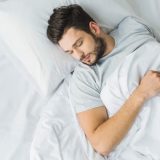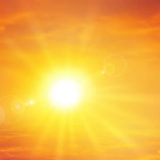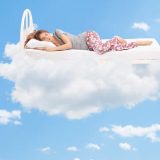One of the leading causes of excessive daytime sleepiness, sleep apnea is a potentially serious problem. Most people consider snoring to be nothing more of an annoyance to those within earshot. However, snoring that is due to sleep apnea poses many health threats. Since this sleep disorder frequently goes undiagnosed, those demonstrating its symptoms are strongly encouraged to consult with their physician. This is because revealing a case of sleep apnea can lead to treatment that will not only improve fatigue, but also reduces the risk of many sleep apnea-induced health problems.
Types of Sleep Apnea
Sleep apnea is categorized as a sleep disorder in which breathing repeatedly stops and starts. There are two main kinds of sleep apnea:
- Obstructive Sleep Apnea – The more common type of sleep apnea, obstructive sleep apnea usually means that the airway has collapsed or is blocked during sleep. The blockage may cause shallow breathing or breathing pauses. When breathing is attempted, the air that squeezes past the blockage can cause loud snoring. Although it can affect anyone, obstructive sleep apnea happens more often in people who are overweight.
- Central Sleep Apnea – This less common type of sleep apnea occurs when the brain does not send the proper signals to the muscles that control breathing. Thus, the affected person makes no effort to breathe for brief periods. While central sleep apnea often occurs together with obstructive sleep apnea, it can occur alone. Snoring doesn’t typically happen with central sleep apnea.
Sleep Apnea Dangers
Sleep apnea is considered a serious medical condition. Untreated sleep apnea can:
- Increase the risk for hypertension (high blood pressure). This is because the sudden drops in blood oxygen levels increases blood pressure and strains the cardiovascular system.
- Increase the risk for or worsens heart failure. Especially if there’s underlying heart disease, multiple episodes of low blood oxygen levels can lead to sudden death from a cardiac event (heart attack or stroke).
- Result in significant daytime fatigue. The repeated awakenings associated with sleep apnea make normal, restorative sleep impossible. Therefore, those with sleep apnea often experience severe daytime drowsiness that could be catastrophic for many professionals (like truck drivers or heavy machine operators).
- Be a major complication following surgery. Obstructive sleep apnea is a major concern during surgery because breathing problems can change the effectiveness of general anesthesia. Undiagnosed sleep apnea is especially risky for those undergoing surgery.
Sleep Apnea Symptoms
Statistics suggest that an estimated six to seven percent of Americans have sleep apnea, yet about half of those cases are undiagnosed. Since sleep apnea is associated with some severe health risks, recognizing that sleep apnea may be the cause of your fatigue could literally be a lifesaver. To aid this recognition, the most common signs and symptoms of obstructive and central sleep apneas include:
- Excessive daytime sleepiness
- Loud and chronic snoring
- Pauses in the snoring – often followed by choking or gasping
- Observed episodes of breathing cessation during sleep
- Awakening with a dry mouth or sore throat
- Morning headache
- Difficulty staying asleep (insomnia)
All snorers don’t necessarily have sleep apnea. For those who do snore, gasp, choke and briefly stop breathing during sleep, their family member or bed partner is more likely to notice. This is because the person affected is usually unaware of these patterns.
Sleep Apnea Detection and Correction
If you suspect sleep apnea to be behind your fatigue, make sure to have your physician rule it out. After evaluating your medical and family histories and performing a physical exam, sleep apnea is ultimately diagnosed from a sleep study performed by a sleep specialist.
Upon a sleep apnea diagnosis, there are a variety of treatment solutions. They include:
- Lifestyle Changes – These include avoiding alcohol, stopping smoking, losing weight if overweight or obese, sleeping on your side (instead of the back) to keep the throat open and keeping nasal passages open at night with nose sprays, allergy medications or a specially designed spring-loaded bandage.
- Mouthpiece – A mouthpiece (or oral appliance) is a custom-fitted device made by a dentist or orthodontist that adjusts the lower jaw and tongue to help keep the airway open during sleep.
- Breathing Devices – Continuous positive airway pressure (CPAP) is the most common treatment for moderate to severe sleep apnea in adults. A CPAP machine uses a mask that fits over the mouth and nose, or just over the nose. The machine gently blows air into the throat to stop the airways from becoming narrowed or blocked during sleep.
- Surgery – Some people who have sleep apnea require surgery to widen breathing passages. The procedure typically involves removing, shrinking or stiffening excess tissue in the mouth and throat or resetting the lower jaw.
If your fatigue is severe, make sure that sleep apnea is not the culprit. Sleep apnea has not yet been diagnosed in millions of Americans with this disorder and, unfortunately, undiagnosed sleep apnea can have serious consequences. If a sleep study does reveal this condition, the solutions reduce the associated health risks. In addition, treating sleep apnea can also do away with excessive daytime sleepiness.




